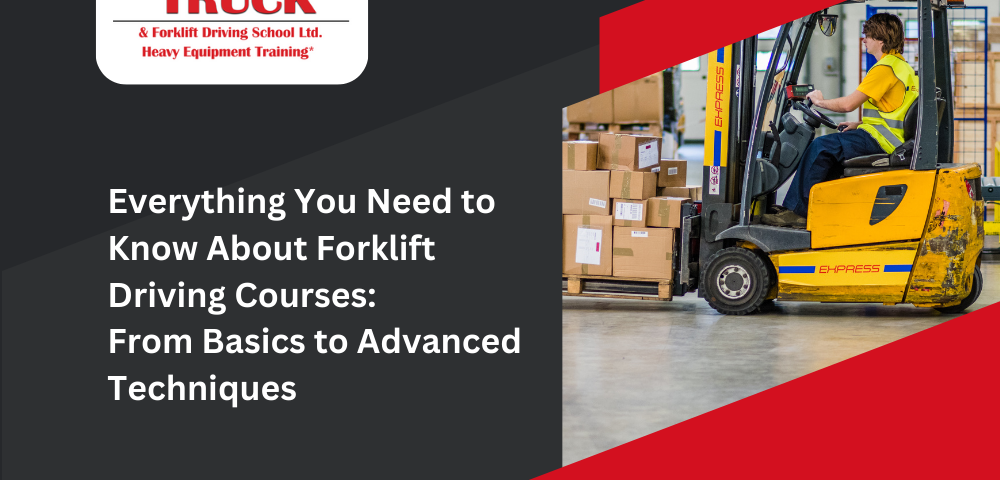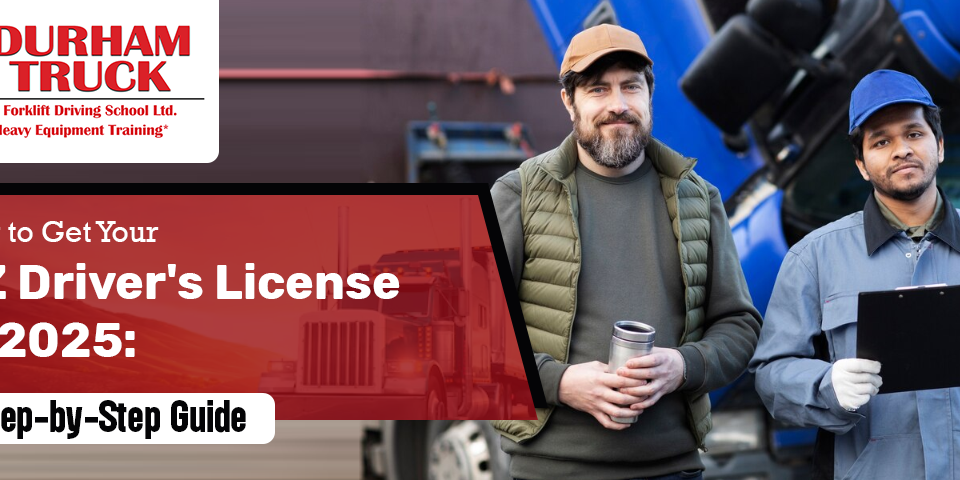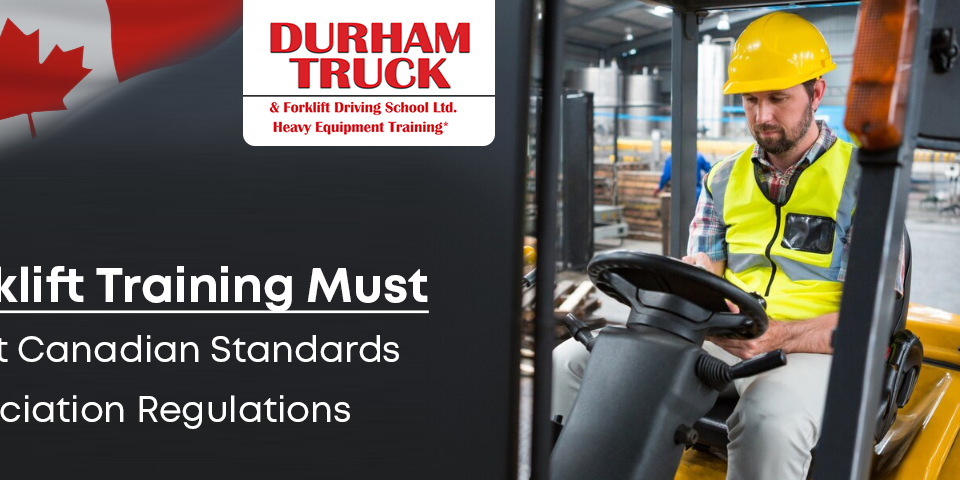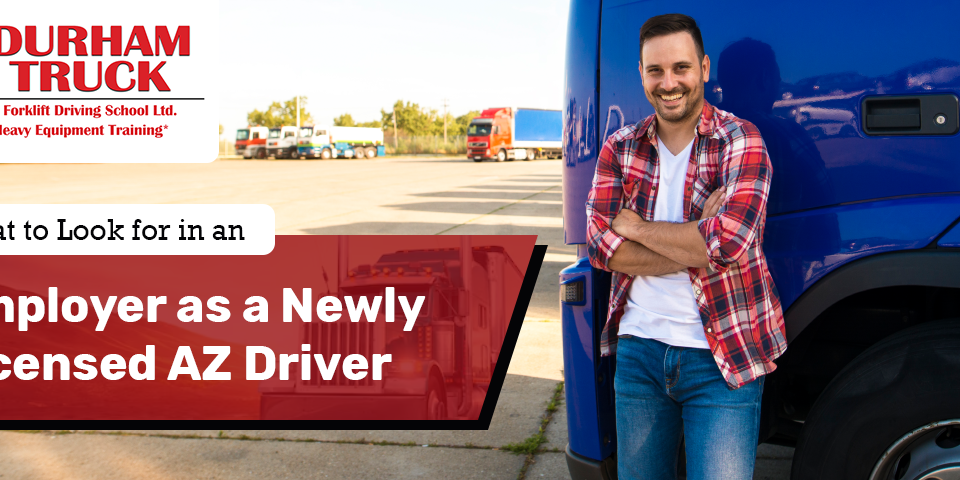Everything You Need to Know About Forklift Driving Courses: From Basics to Advanced Techniques

How Truck Driving Training Can Improve Your Skills and Open New Job Opportunities
August 24, 2023
The Ultimate Guide to Choosing the Right Truck Training School for Your Career
September 22, 2023Are you ready to take your career to new heights? If so, then look no further than forklift driving courses! Whether you’re a beginner wanting to learn the basics or an experienced operator looking to fine-tune your skills with advanced techniques, this blog post covers you. Get ready to dive into the world of forklift driving and discover everything there is to know about these essential courses that can propel your professional journey forward.
Introduction to Forklift Driving Courses
Forklift driving courses provide drivers with the skills and knowledge necessary to operate a forklift safely. Various forklift driving courses are available, from basic safety courses to more advanced training programs.
Most forklift driving courses will cover the basics of operating a forklift, including how to start and stop the vehicle, move it forward and backward, and turn it. The course will also cover basic safety procedures, such as correctly securing loads on the forks and stack pallets.
More advanced forklift driving courses may cover topics such as safe operation in confined spaces or around pedestrians, proper maintenance of the forklift, and troubleshooting common problems. These courses typically require more hours of training than introductory safety courses.
Operating a forklift is a responsibility that should not be taken lightly. Drivers who have completed a forklift driving course will be better prepared to handle the vehicle safely and confidently.
The Benefits of Taking a Forklift Course
Taking a forklift course can benefit those looking to become certified operators. Not only will individuals learn the basics of operating a forklift, but they will also gain valuable skills and knowledge that can be applied to real-world situations.
Some of the benefits of taking a forklift course include:
-Improved safety awareness: One of the most essential aspects of operating a forklift is understanding how to do so safely. Forklift courses can help individuals identify potential hazards and learn how to avoid them.
-Greater confidence: With the improved safety awareness from taking a forklift course, operators will likely feel more confident when using forklifts in their work. This increased confidence can lead to improved productivity and fewer accidents.
-Expanded career opportunities: Many employers prefer or require candidates for forklift operator positions to have some formal training. Individuals can make themselves more attractive candidates for these jobs by taking a course.
Types of Forklift Courses Available
Various forklift driving courses are available to meet the needs of different types of operators. Basic courses typically cover the essentials of forklift operation, such as safety procedures, basic controls, and how to load and unload cargo. These courses are usually intended for new or inexperienced operators. More advanced courses may cover advanced maneuvers, working with difficult loads, and operating in confined spaces. These courses are typically intended for experienced operators who wish to improve their skills or learn new techniques.
The Different Types of Forklifts and Their Applications
Numerous types of forklifts are available on the market, each with its own advantages and disadvantages. Your kind of forklift will depend on your specific needs and application. Some of the most common types of forklifts include:
Counterbalance Forklifts: Counterbalance forklifts are the most popular type of forklift and are typically used in warehouse environments. They feature a weight at the back of the machine that helps to counterbalance the load being lifted, making them more stable and more accessible to operate than other types of forklifts.
Reach Forklifts: Reach forklifts are designed for lifting and moving long or bulky loads. They feature an extendable mast that allows the operator to reach high shelves or racks, making them ideal for use in warehouse environments.
Articulating Forklifts: Articulating forklifts are similar to reach forklifts but feature an articulated arm that allows for even greater reach and flexibility. These machines are often used in construction or landscaping applications where they can be used to move materials around tight corners or over rough terrain.
Telescopic Forklifts: Telescopic forklifts feature a telescoping boom extending up to 40 feet, making them ideal for lifting heavy loads from great heights. These machines are often used in construction or industrial applications where they can be used to move materials around tall buildings or over large open areas.
Practical Exercises and Assessments During the Course
Practical exercises and assessments are an important part of any forklift driving training. They help to ensure that students can put the theory they have learned into practice and also help to identify any areas where further improvement is needed.
Practical exercises can take many forms but typically involve students carrying out tasks such as loading and unloading goods, driving in and out of storage areas, and maneuvering around obstacles. Assessments may be written tests, oral exams, or practical demonstrations.
Students taking a forklift driving course must be given ample opportunity to practice and assess their skills. It will help ensure that they are fully prepared for the workplace and can operate a forklift safely and confidently.
Safety Regulations and Best Practices With Forklifts
Forklifts are powerful machines that can cause serious injuries if not operated properly. That’s why taking a forklift driving course is important so you can learn the proper safety regulations and best practices. Here are some things you’ll learn in a forklift driving course:
– The different types of forklifts and their capabilities
– The basics of how to operate a forklift, including proper steering, braking, and shifting
– How to load and unload materials safely
– The importance of conducting regular maintenance checks on your forklift
– What to do in case of an emergency
Conclusion
Forklift driving courses are a great way to learn the basics of operating a forklift and advanced techniques for safe operation. With the right course, you can quickly get certified and become an expert. Whether you’re looking to work on construction sites or warehouses, these courses will help you gain the skills necessary to be successful. So don’t delay – sign up for a forklift driving course today and start your career on the right foot!




